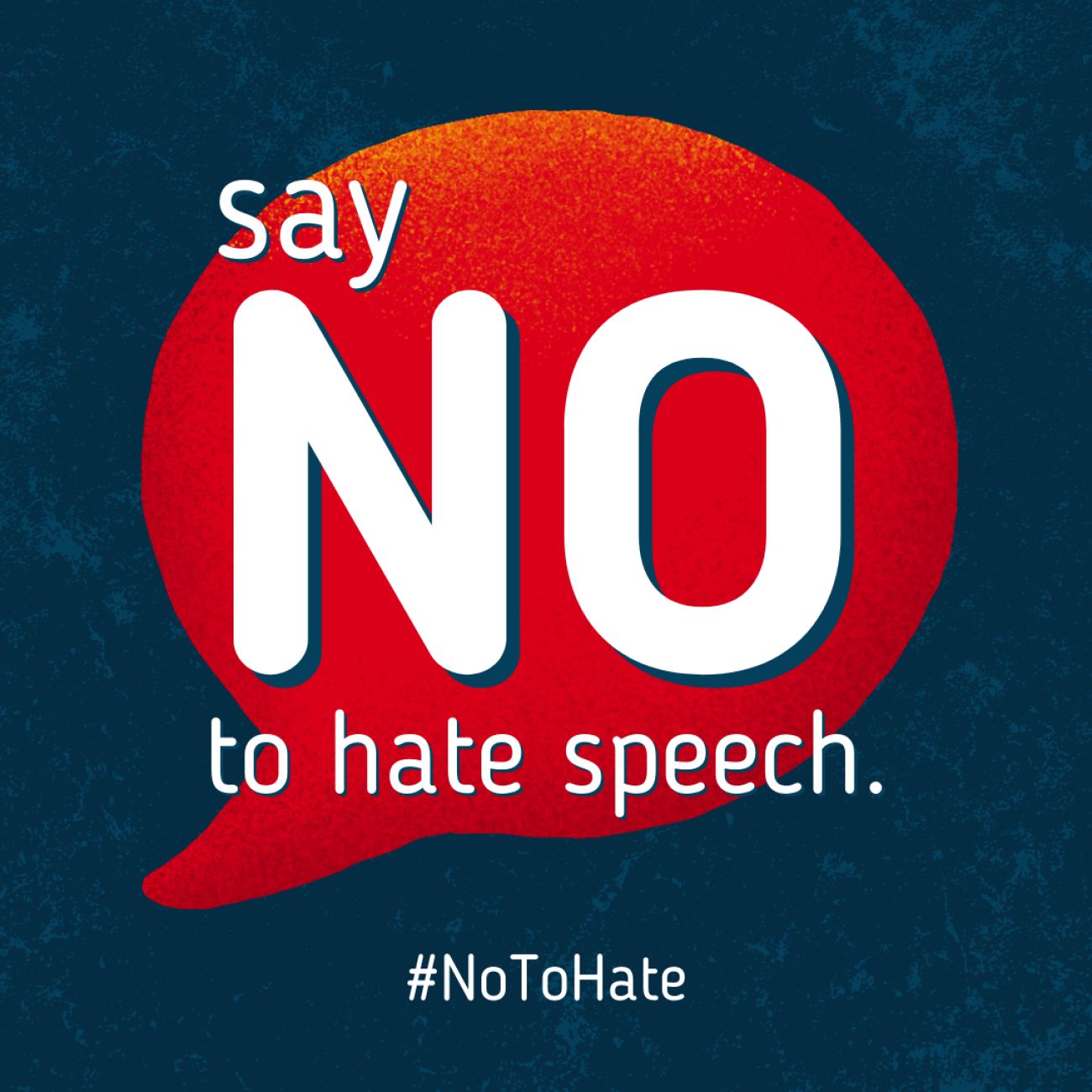The United Nations in Namibia (UN Namibia), along with regional and international offices around the world will be commemorating the first ever “International Day for Countering Hate Speech” on 18 June 2022.
Hate speech incites violence and undermines social cohesion and tolerance. The commemoration of this day calls for countries, civil society, NGOs, academic institutions, the private sector, young people and individuals from all walks of life – to annually observe the “International Day for Countering Hate Speech”, starting from tomorrow.
In highlighting this day, society at large are called upon to oppose hate speech in all its forms and encourage all individuals to show solidarity to the cause, by;
- partaking in peaceful and constructive conversations on the topic,
- by educating ourselves on the nature of hate speech (what is hate speech? What forms does it take? How does it impact our communities? What can we do to provide an alternative? etc.),
- by sharing knowledge and by being mindful of the many historical humanitarian crises which were kindled by patterns of hate speech.
Hate speech has been spreading like wildfire in recent years, particularly on social media and the internet where it has been growing in popularity as a way for people to express anger and perpetuate resentment against others. These platforms are transboundary and regrettably allow such people/groups to promote their divisive rhetoric very efficiently, menacing the peace and the well-being of communities (not just minorities) all across the world. Misogyny, intolerance, anti-Semitism and anti-Muslim sentiments are some of the most preoccupying and growing trends evident today, although the targets and scapegoats are many.
“We cannot allow hate speech to divide us, let us promote respect for diversity and inclusivity in the spirit of ‘Ubuntu.’ Never forget that ‘I am because we are,’” said Sen Pang, UN Resident Coordinator, UN Namibia.
He further urged civil society to hold in high regard the power of their words, saying “We must not use our words as weapons. Hate speech threatens the fibre of our humanity and is a danger to everyone. Let's say #NoToHate,” he concluded.
Hate speech promotes division and encourages violence, it can lead to trauma, sometimes on a huge scale. The devastating consequences of widespread anti-Semitism in Europe this last century, the genocide against the Tutsi in Rwanda, the Herero Genocide in Namibia and other genocides, are all examples of the result of widespread hatred aimed at a specific community.
The issue of hate speech inherently crosses many principles upheld by the United Nations, such as its pledge to fight hate, violence, discrimination, racism and inequality.
In line with the United Nations’ Sustainable Development Goals 3, 6, and 11 (respectfully calling for Good Health and Well-Being, Sustainable Cities and Communities, and Peace, Justice and Strong Institutions), the UN and its Country Teams all over the world are committed to addressing and countering the spread of hate speech, a duty paramount to the preservation of peace, equality and all forms of sustainable development on an international scale.
About the International Day for Countering Hate Speech:
The commemoration of this day was brought about following the General Assembly resolution 75/309 on “Promoting Interreligious and Intercultural Dialogue and Tolerance in Countering Hate Speech” adopted on 15 July 2021.
Read more here: https://www.un.org/en/hate-speech







